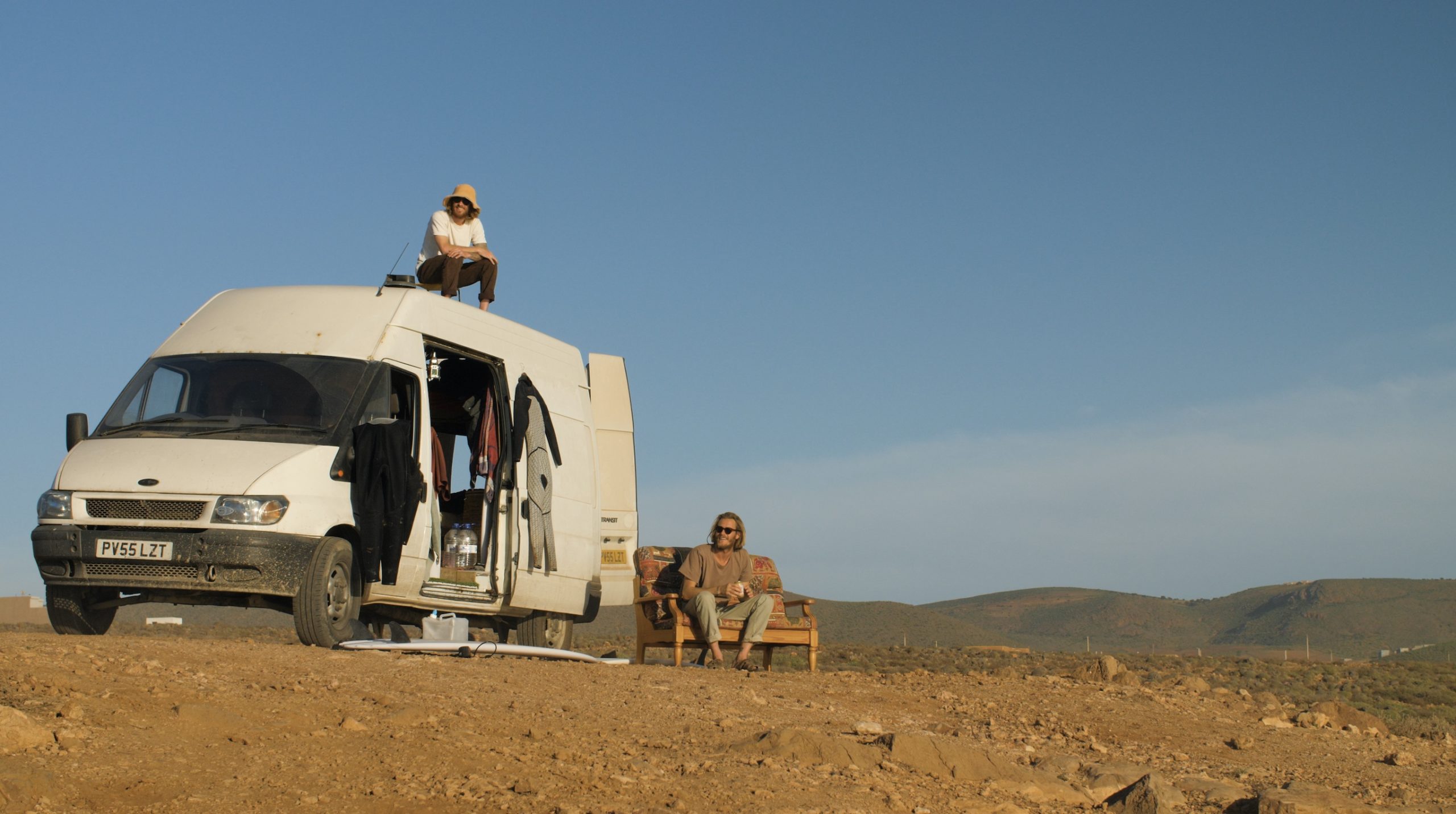WE LIVE IN A SURF TRAVEL SIMULATION
Ishka Folkwell shot the last sequences of the Lost Track Atlantic series in the days before Europe’s borders slammed shut and the world ground to a halt. He packed up his gear and bailed home for the impending birth of his first child. His travel buddy, Torren Martyn meanwhile stayed in Morocco with girlfriend Aiyana, eventually being forced to abandon their van and scramble onto one of the last flights back home to Australia.
The old Byron schoolmates had just spent four months travelling around Europe and North Africa, filming for what would become needessentials’ four-part Lost Track Atlantic series, the first of which has just dropped. Ishka and Torren didn’t realise it at the time, but the raw footage they’d just shot would be amongst the last surf travel footage shot anywhere for the next couple of years. With everyone stuck at home they’d cornered the market, although Ishka wasn’t entirely sure how it would go over with travelsick punters. He laughs, “I don’t know whether people will appreciate the movie more as a result or get bitter about the fact we’re showing this epic travel and they can’t actually go anywhere themselves.”
Ishka and Torren have been mates since high school. When Ishka started dabbling in surf film, Torren was there to shoot. An easy partnership was born. The pair’s first major project was a film shot travelling across Australia in a four-wheel drive, retracing a trip Torren had done as a kid. Lost Track was born. Ishka recalls, “Halfway towards the end of that trip we started talking about the idea of continuing that same sort of surf adventure documentary I guess you’d call them, travelling through different countries using different modes of transport. The first one was in a four-wheel drive, then we did New Zealand by motorbike and then Europe to Africa in a van.” He laughs about doing the next one on bike or kayak. “We’re running out of the easy ones.”
Lost Track is just the two of them, and that’s half the charm. There are waves, sure, some great scenic wallpaper and locals largely oblivious to the surfing act, but at the heart of it these are buddy films. Two mates in a van who move easily through the countryside and through their film. Being stuck in a van for months together might leave you wanting to kill the bloke snoring in the back, but these two are cruisers. “We’ve never had an argument or anything like that,” says Ishka. “At the worst morale might get a bit low for a day or something if we’re getting skunked or there’s some shit weather or whatever it might be. But it always bounces back pretty quick and it’s never a big deal. I think maybe that’s one of the reasons that the films seem to work is because we are similar in that way and get along well. There’s no real conflict, if at all.”
The Lost Track series has been a runaway hit. Lost Track New Zealand is heading toward a million views. Both their New Zealand and now Atlantic episodes have dropped during the lockdown, and there’s a vicarious joy to watching them. But before anything else they feel honest. Back at home Torren drives the same van, and apart from the wetsuits and the Northern Hemi landscapes, his life at home isn’t jarringly different to the film.
The honesty extends to the surf. Like any surf trip the lads often get skunked, but unlike most surf films the skunkings stay in the edit. “I guess we wanted to show that side of it,” offers Ishka. “We didn’t want to glorify it too much so we kept one or two of the shit sessions in there. Those days when you’re wet and cold and it’s not this epic trip where every day is the best day of your life. I feel that people can relate to that and appreciate it.” The next episode however might be light on for shit surf. We leave the first episode of the Atlantic series with the lads headed to Morocco chasing a swell. Ishka offers a spoiler. “Torren still reckons they’re the best waves he’s seen in his life.”
For a travel movie, the measure of Lost Track isn’t so much distance, but time. The simple idea of following a story from beginning to end seems to have long since disappeared from surf narrative – and surfing itself – where time is scrambled and looped. There’s almost a relief to watching a story roll out in a straight line. Removed from abstraction, it’s always going somewhere, even if the boys don’t know where that somewhere is. These movies have premiered in interesting times. A world engineered to spin faster and faster ground to a halt, and we’ve had the time to appreciate two guys cruise around the Scottish Highlands in a van with a dodgy clutch. We might not be travelling ourselves, but the lads’ van life simulator is allowing us to do it vicariously. — SEAN DOHERTY
